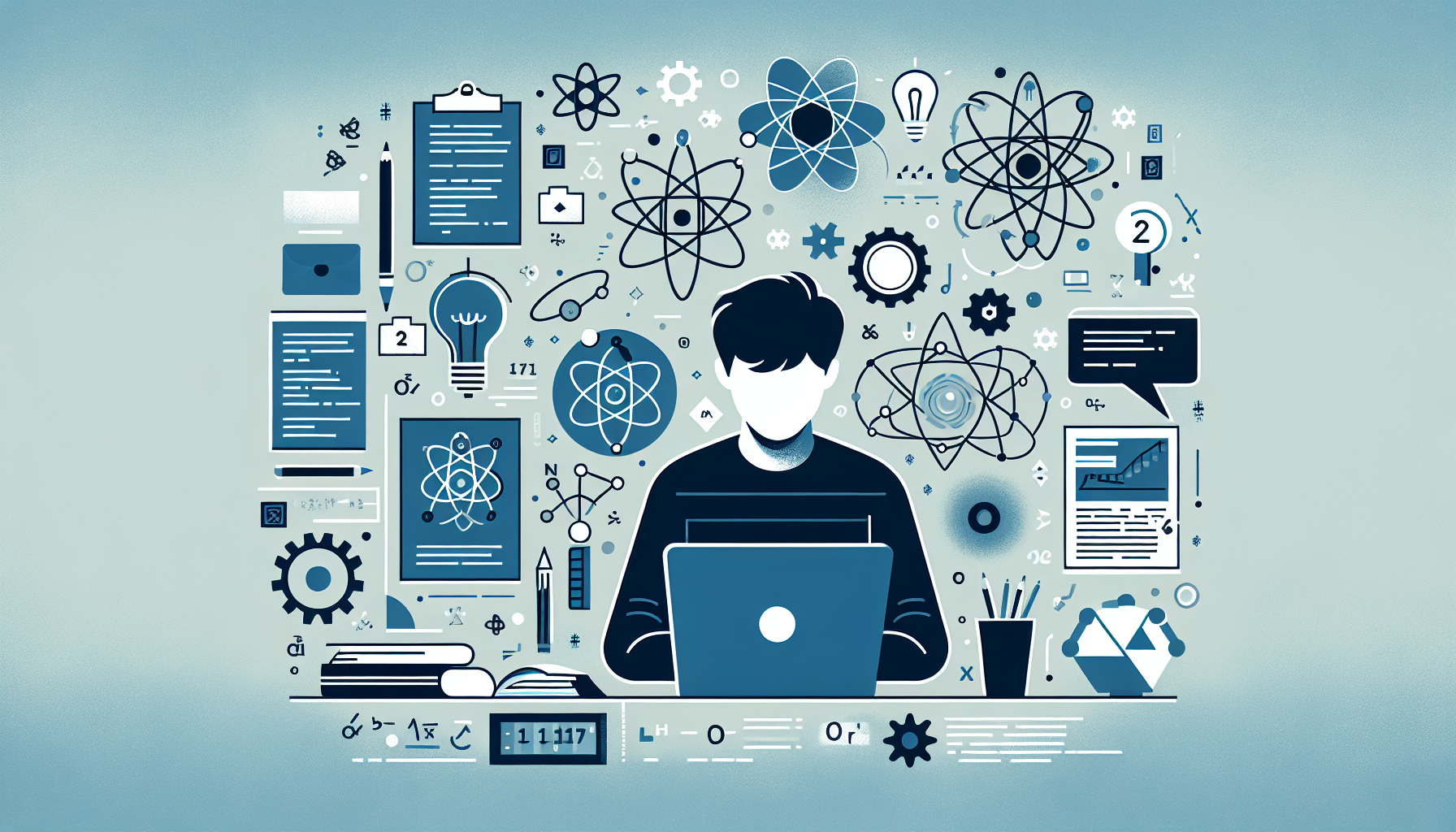Best ways to learn physics concepts include utilizing interactive tools like simulations, leveraging course-aligned resources and platforms for personalized learning, and engaging in collaborative study groups to enhance understanding and study efficiency.
Best ways to learn physics concepts can transform how you tackle challenging STEM courses. For many students, physics seems daunting, but there are innovative strategies that can simplify grasping difficult theories and boost your academic performance. Discover how to make physics one of your strongest subjects.
Mastering Complex Theories With Simple Tools
Understanding complex physics theories can be daunting, but with the right tools, it becomes more manageable. Visualization tools, such as simulations and animations, help students grasp abstract concepts by turning them into interactive visuals. This approach allows students to see phenomena in action, making it easier to comprehend how principles work in real-time.
Breaking Down Equations
Equations are at the heart of physics, but they can seem like insurmountable hurdles. Breaking down each component using step-by-step guides simplifies the process. These guides walk students through the logic behind each term, demystifying the equations and revealing how variables interact.
Utilizing Analogies
Analogies are powerful tools for understanding complex theories. By comparing unfamiliar physics concepts to familiar daily experiences, students can build a framework that relates new information to existing knowledge. For example, comparing electrical circuits to water flowing through pipes makes current and resistance more intuitive.
Interactive Learning Platforms
Interactive platforms that offer quizzes and problem-solving exercises provide immediate feedback, reinforcing learning. These tools adapt to individual learning paces, ensuring that students understand concepts thoroughly before moving on to more complicated topics.
Practical Tips For Acing Physics Exams

Studying for physics exams can be less stressful with effective strategies. Start by creating a study schedule that breaks down topics over days or weeks. This helps in managing your time and reducing last-minute cramming. Focus on understanding concepts rather than memorizing formulas by practicing with a variety of problems.
The Power of Practice Tests
Simulating exam conditions with practice tests enhances your time management skills and identifies areas for improvement. Aim to solve past exam papers and timed quizzes to build confidence and efficiency.
Use Visualization Techniques
Visual aids like concept maps and diagrams can simplify complex ideas and show how different topics are interlinked. These tools also aid in memory retention and make revisiting topics quicker and more effective.
Active Collaboration
Joining study groups allows you to share knowledge and tackle difficult problems collectively. Teaching others is a powerful way to reinforce your understanding and clear up any uncertainties you may have.
Course-aligned Resources For Concept Clarity
Finding resources that align with your physics courses can vastly improve your understanding and grades. One key resource is textbooks recommended by your instructors, which are tailored to the course curriculum. These books provide in-depth explanations and examples that mirror what’s taught in class.
Leveraging Online Courses
Online platforms like Khan Academy and Coursera offer courses that sync with your class topics. They feature video lessons and interactive exercises that reinforce classroom lectures, making them perfect supplements for studying tricky concepts.
Utilizing Lecture Notes
Your class notes are invaluable, especially when paired with additional resources. Reviewing these alongside your textbooks and online materials ensures you have a comprehensive understanding and can help identify any gaps in your knowledge.
Engaging with Study Groups
Study groups encourage collaborative learning and provide access to shared resources like notes and recorded lectures. Discussing topics with peers can clarify complex ideas and offer new perspectives on classroom content.
Engaging Online Platforms Transforming Study Efficiency

Online platforms are changing how students study physics, making learning more effective and engaging. Platforms like Quizlet and Khan Academy offer interactive quizzes and video tutorials that cater to different learning styles. These resources are accessible anytime, providing flexibility and convenience for students.
Customized Learning Experiences
Many platforms use algorithms to create personalized study paths. These paths adjust to a student’s progress, ensuring they spend more time on areas where they struggle. This tailored approach maximizes study efficiency and helps in understanding complex concepts.
Collaborative Features
Features like discussion forums and group study sessions enable students to connect with peers worldwide. These platforms facilitate knowledge sharing and create an environment where students can learn from each other, improving problem-solving skills.
Gamified Learning Elements
Gamification elements such as rewards and progress tracking keep students motivated. Earning points and badges for completing modules not only makes learning fun but also encourages consistent study habits.
Discover the best strategies for mastering physics
Exploring the best ways to learn physics concepts can truly make a difference in your studies. From using simple tools to grasp complex theories to engaging with course-aligned resources and online platforms, these strategies provide diverse learning paths.
Interactive methods like practice tests and group studies enhance understanding and tackle challenges effectively. Embracing technology and leveraging collaborative features online can transform your study routine, making it both efficient and enjoyable.
With these approaches, mastering physics becomes more attainable and effective, guiding you towards academic success.


